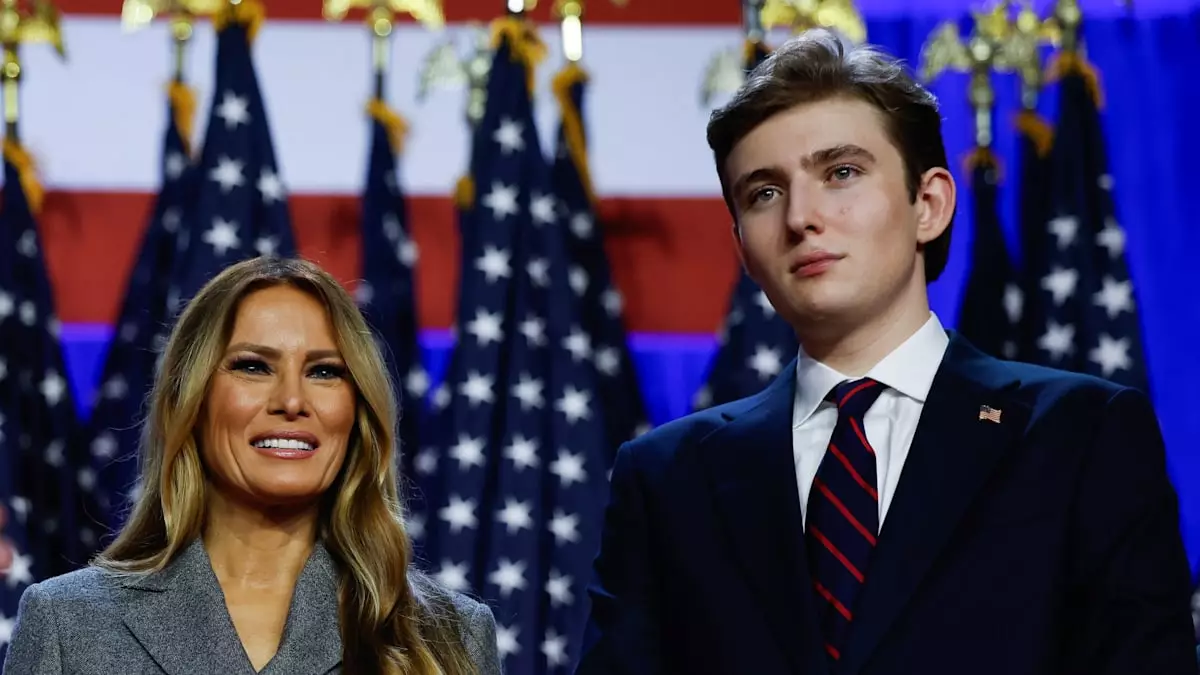In recent weeks, a swirling vortex of rumors has engulfed the Trump family, particularly concerning Barron Trump’s college aspirations and his father’s contentious relationship with Harvard University. Donald Trump’s outspoken critiques of Harvard, punctuated by accusations of discrimination and misguided policies, have resulted in severe repercussions, such as cuts to federal funding and aggressive policies aimed at altering the university’s diversity programs. Yet, amidst this chaos, one narrative gained traction—that Barron’s perceived rejection from Harvard was the catalyst for his father’s vitriol. The situation echoes a deeper issue prevalent in contemporary discourse: the consumption and propagation of unchecked rumors, especially when they target public figures.
The widespread belief that Barron had applied to Harvard and was rejected before his father’s tirade reached a boiling point when Senator Sheldon Whitehouse took to social media, fueling speculation with a tongue-in-cheek jab. Such insinuations, albeit rooted in political satire, underscore how easily misinformation can spread, especially when it involves high-profile personalities like the Trumps. Melania Trump swiftly worked to clarify the situation, utilizing her communications team to debunk the rumors. The first lady firmly stated, “Barron did not apply to Harvard,” a declaration echoed by her insistence that the narrative was not only false but also damaging. This incident highlights the precarious nature of reputation in the digital age, where rumors can overshadow truth and clarity.
Admission to NYU: A Strategic Decision
Barron Trump’s decision to enroll at New York University’s Stern Business School rather than pursue the Ivy League route was unexpected for some, especially considering the historical academic paths of his family. The elite nature of universities like Harvard, coupled with a student’s credentials, often creates an expectation. Yet Barron’s choice marks a significant departure from tradition, illustrating a nuanced understanding of personal goals rather than blindly adhering to familial precedence. The Young Trump has now completed his freshman year, quietly succeeding in a competitive environment renowned for its rigorous standards and diverse student body.
Donald Trump’s comments on Barron’s acceptance, describing a broad array of colleges vying for his son’s attention, signal a strong belief in his son’s capabilities. When he remarked on Barron’s intelligence, noting, “He’s a very smart guy,” it demonstrates a father’s pride in his son’s academic achievements without the politically charged backdrop of Harvard’s perceived elite status. This anecdote serves not just as a reflection of Barron’s personal educational journey but also as a commentary on the importance of choice and agency in higher education, regardless of public presumption.
A Unique College Experience
Melania Trump, in discussions about Barron’s collegiate experience, acknowledged the complexities of growing up in the public eye, particularly during an election year. Unlike his peers, Barron’s lifestyle is intertwined with the demands of political life. “I don’t think it’s possible for him to be a normal student,” she remarked, underlining the stark differences in his experiences compared to those of his classmates. It’s a poignant view on how political identity can color personal experiences, making it crucial to understand the context surrounding any academic journey.
Furthermore, Melania highlighted her son’s engagement with contemporary societal issues, especially regarding the younger generation. By valuing his perspectives on politics and societal interactions, she presented him as a bridge between traditional values and modern ideologies. Drawing attention to Barron’s increased relevance among Gen Z voters, she suggested that he possesses an innate understanding of their interests and values. This illustrates more than a familial pride; it speaks to the importance of responsiveness in political discourse, suggesting that even the younger Trump is aware of the shifting cultural sentiments among his peers.
This scenario embodies a broader cultural dialogue about education, privilege, and scrutiny. The Trump family’s narrative sheds light on the larger theme of how public perception can warp personal realities, often obscuring authentic experiences in favor of sensationalist narratives. Barron’s educational decisions, framed against the backdrop of media speculation, create a microcosm of how we engage with youth in the political sphere, beckoning a reevaluation of assumptions made about lineage, ambition, and self-determination.
